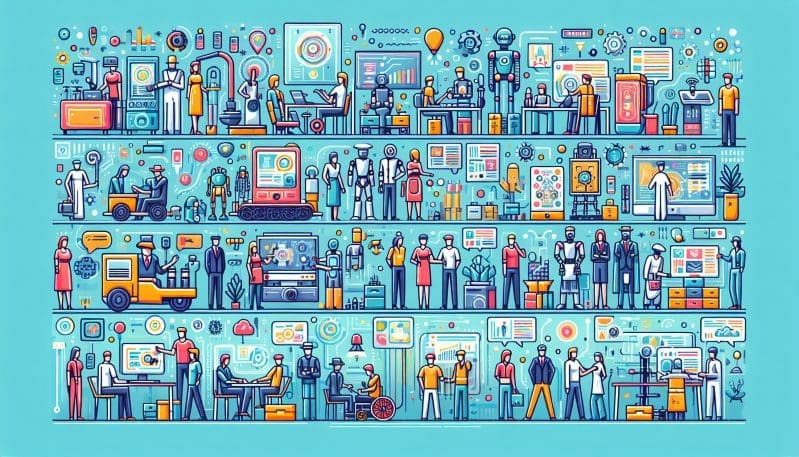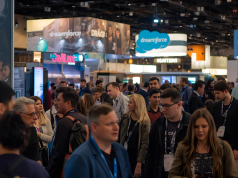As artificial intelligence (AI) and automation continue to advance, the landscape of work is undergoing a profound transformation. The future job market will be characterized by the need for new skills and the decline of traditional roles. The rise of technology-centric environments presses upon the workforce the imperative of continuous learning and adaptability. This article will delve into the sectors expected to expand in an AI-driven economy, the roles that may become obsolete, and the educational and policy-driven initiatives necessary to aid a seamless transition for workers from all walks of life into the evolving employment ecosystem.
The Integration of AI Across Industries
———————————————————
Artificial intelligence is no longer a distant frontier of tech giants; it has permeated various sectors from healthcare to finance, creating new job categories in its wake. Professions in data analysis, AI ethics, cybersecurity, and machine learning are experiencing rapid growth. Workers with the ability to understand and leverage AI technologies are poised to be in high demand.
The Decline of Traditional Roles
———————————————————
With the automation of routine tasks, positions that rely heavily on repetitive processes are at risk. The transition may be challenging for many, as roles like data entry clerks, telemarketers, and assembly line workers face a reduction. Anticipating these changes is crucial for preparing the workforce for the upcoming shifts.
The Critical Need for Lifelong Learning
———————————————————
To navigate the AI-driven economy, individuals must become lifelong learners. The ability to continuously update one’s skillset to keep pace with technological advancements is not a luxury but a necessity. Employers and employees must foster a culture of education, where upskilling and reskilling are part and parcel of professional development.
Strategies for Policymakers, Educators, and Recruiters
———————————————————
Policymakers must enact legislation that supports education and workforce training programs while ensuring safety nets for those displaced by automation. Educators must revise curricula to include AI literacy and critical thinking skills. Recruiters must evolve by identifying potential rather than specific experiences, focusing on a candidate’s ability to learn and adapt.
Ethical Considerations and Socioeconomic Impacts
———————————————————
The rapid transformation of the job market brings forth ethical questions and socioeconomic impacts. The digital divide could widen disparities if not addressed, making it imperative to ensure equitable access to technology and education. The article will explore these considerations, offering insights and guidance for individuals and organizations alike.
Conclusion
———————————————————
The dynamic future of work requires active preparation from all sectors of society. To thrive in an AI-driven economy, job seekers must cultivate invaluable skills and remain adaptable. Policymakers, educators, and recruiters must collaborate to facilitate this transition, ensuring the ethical and equitable evolution of the workplace. By highlighting the emerging job sectors, advocating for lifelong learning, and examining the socioeconomic impacts, this article serves as a resource for those navigating their career paths or shaping the workforce of tomorrow.




























